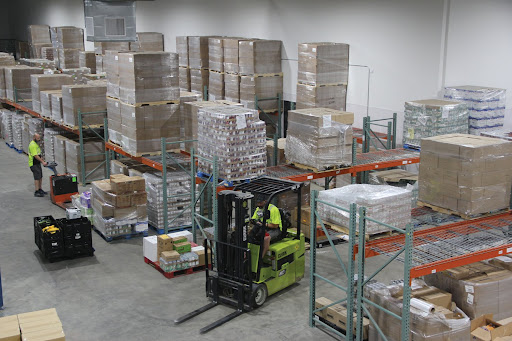Community Foundation of Greater Des Moines, United Way of Central Iowa intervene in Food Bank-DMARC dispute

Michael Crumb Jan 20, 2023 | 10:59 am
3 min read time
752 wordsAll Latest News, Arts and Culture, Iowa Stops HungerTwo nonprofit powerhouses have intervened in the dispute between the Food Bank of Iowa and the Des Moines Area Religious Council in hopes of resolving differences that threatened the ability of some DMARC food pantries to access food from the Food Bank.
In what was described as a joint statement released Thursday from the Food Bank of Iowa and DMARC, the agencies said the Community Foundation of Greater Des Moines and United Way of Central Iowa have come forward to facilitate talks between the food assistance organizations to come up with a solution to the ongoing challenges.
The Food Bank and DMARC were contacted by the nonprofits last month, according to the statement. The talks are scheduled for February, but no specific date was given in the release.
The release said that officials with the Food Bank of Iowa and DMARC have agreed not to discuss any updates until after the talks are complete.
The Business Record reached out to both organizations. Michelle Book, president and CEO of the Food Bank of Iowa, and Matt Unger, CEO of DMARC, both declined to comment.
Scott Raecker, executive director of the Robert D. and Billie Ray Center at Drake University, and Jordan Vernoy, with See What I Mean consulting, will facilitate discussions, according to the statement.
In a statement provided to the Business Record, Kristi Knous, president of the Community Foundation of Greater Des Moines, said the foundation and United Way are “aligned in our efforts to build a strong and collaborative nonprofit sector.”
“We joined to encourage facilitated dialogue between the leadership of Des Moines Area Religious Council and the Food Bank of Iowa,” Knous said.
She said the foundation and the United Way will provide funding to support the talks.
“It is with great hope we look forward to positive outcomes” from the talks, she said in the statement to the Business Record.
In the announcement from the Food Bank and DMARC, Knous said the foundation and the United Way “recognize the heightened levels of food insecurity and the desperate community need for a collaborative food network.”
“We look forward to positive outcomes so that we can collaboratively address food insecurity and our community can thrive,” she said.
Mary Sellers, president of the United Way of Central Iowa, said in the release that the United Way and the Community Foundation “are committed to doing what we can to ensure those in need of food in our community have access.”
“As our region seeks a sustainable food system that meets the needs of all, we recognize solutions are found when we are united in our work and inventions,” Sellers said.
The Business Record reached out to the United Way of Central Iowa for additional comment but did not hear back before this story was published.
Background
The dispute between DMARC and the Food Bank of Iowa began last fall when the Food Bank terminated its partnership with DMARC and 10 of its food pantries. That meant those DMARC pantries could no longer place food orders with the Food Bank or access food from food rescue donations or from certain stores in the area.
DMARC published an explanation on its website in November, saying the new terms required by the Food Bank would not be sustainable because of limited resources.
“Given the extremely tight timeline imposed by the Food Bank of Iowa to make this change, many organizations did not feel they could sign the new contract,” DMARC officials said in the explanation on their website.
In a statement released in mid-December, the Food Bank of Iowa board said the changes were best practices identified within the Feeding America network and were supported by Feeding America, a network of 200 food banks and 60,000 food pantries and meal programs across the country.
In the statement, the Food Bank board said it was “surprised and perplexed by the decision to discontinue partnership.”
“The decision to require a minimum three-day supply of food monthly is reasonable and is fully supported by the board of directors,” the statement read. “We do not understand why anyone would work against more equitable access to food.”
In the statement released Thursday, the organizations said they hope to resolve their differences in next month’s talks.
“All parties have agreed these solutions-focused convenings are a top priority as we seek to address food insecurity through a community-wide, collaborative network,” the statement read. “In the meantime, both organizations continue to keep pantry shelves stocked and ensure our neighbors facing food insecurity are receiving the assistance they need.”

Michael Crumb
Michael Crumb is a senior staff writer at Business Record. He covers real estate and development and transportation.










